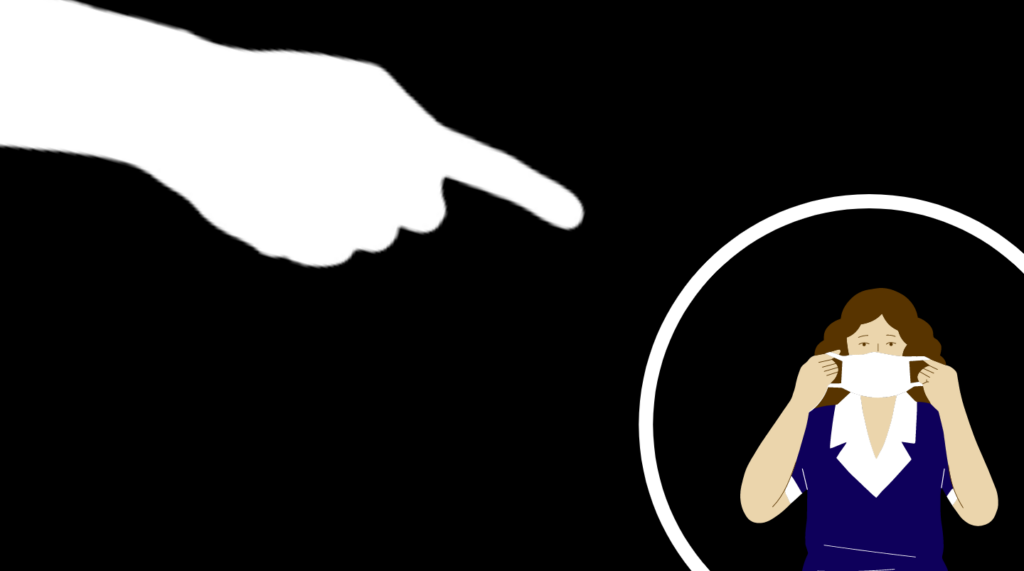| It’s happening everywhere. If you’re not wearing a mask or standing too close to someone else, expect some dirty looks.
Stores want shoppers to wear masks. But some customers refuse Should bosses order everyone to wear a mask and social distance or should it be optional? Can Employers Mandate the Use of Facemasks, and What If Employees Can’t (or Won’t) Wear Them? |
The coronavirus pandemic has changed daily life for most of the world’s citizens.
Behavior like wearing masks, once considered bizarre by Americans, has now become commonplace. But it’s still causing deep division among people.
Some wear a mask all the time in public. Some wear it when going to indoor public spaces only. Others don’t wear masks at all. That’s led to the rise of what some experts have called “pandemic shaming.”
Masks aren’t the only issue that arises when it comes to shaming, but they have become a flash point.
Regardless of what people believe, psychologists say shaming people isn’t the right way to go about changing someone else’s behavior.
“We really try to step away from shaming somebody into conforming or participating in what we think are the necessary guidelines,” said Dr. Lynnea Lindsey, director of Behavioral Health Services at Legacy Health.
“Psychologically, we wouldn’t encourage that way of interacting with people.”
Experts say those who shame others, whatever the cause, are really trying to persuade them to do something a different way.
“Shame doesn’t often have the same results as we want it to,” said Dr. Roseann Fish Getchell, clinical psychologist at Providence Health Services. “As far as persuasion goes, we have to have a relationship and some kind of foundation of trust with the person. It’s really hard to persuade somebody if they don’t value that relationship.”
In other words, shaming strangers certainly won’t help things.
“Our best choice is to not entangle ourselves with them,” said Dr. Lindsey. “We have the opportunity to step away or go somewhere else, or go somewhere else most of the time.”

